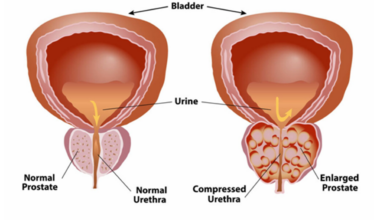
Give a thought to it: when was the last time you scrubbed the roof of your mouth or the tongue? Using a mouthwash and keeping it as a part of your oral hygiene care routine helps flush your mouth and give a refreshed feeling. Although mouthwashes come with many usefulness, they also have a portion of detriments.
There are numerous factors that you have to consider before using mouthwashes. Thus, read along to explore what exactly mouthwash is, its pros and cons, and whether you can use it safely every day or not.
Is Mouthwash Good or Bad for Your Health?
Let’s first know the purpose of mouthwash before determining whether or not it is safe. There are a lot of products available in the local pharmaceutical stores that provide different advantages.
If you thought mouthwashes were all about only providing fresh breath, think again or review the below-mentioned pointers to catch a glimpse of the perks. Mouthwashes are popular because they support:
- Feeling recharged and refreshed
- Diminishing tooth decay utilising sodium fluoride
- Decreasing gum inflammation
- Making teeth white using a bleaching formula
- Preventing gum infection with anti-plaque or antiseptic ingredients
Favouravble and Unfavourable Factors of Mouthwash: Learn if it is Safe
Mouthwash, which is known as an oral rinse, is a liquid solution that is typically used as a part of a supplementary step. For a complete oral hygiene routine, consider these three steps:
- Brushing with fluoride-free toothpaste
- Flossing (with expandable floss or traditional floss)
- Using mouthwash (oral rinse)
A mouthwash comes in different formulations and flavours depending on its uses and brands. Still in confusion whether it is safe or not? Read to know more.
● Advantages of Mouthwash
- Mouthwash promotes healthy gums by effectively eliminating harmful bacteria that brushing alone may miss. This helps prevent gum irritation, which can otherwise lead to periodontal disease.
- Oral bacteria can cause tooth decay. An antibacterial mouthwash kills the germ and protects the tooth from decay.
- Mouthwash helps clean additional leftovers that stay behind your flossing and brushing. The liquid thoroughly washes between your teeth and tongue, helping flush out all the remaining debris.
- It provides fresh breath, making it a popular choice among people. It’s especially effective for a quick rinse after consuming strong foods such as garlic or onion.
● Disadvantages of Mouthwash
- Mouthwash that contains alcohol affects soft tissue in the mouth. Therefore, consulting your dentist is a must.
- A few mouthwashes also contain colours that can stain your teeth and tongue. Thus, one must consider this as a factor when making a choice.
- It comprises sodium lauryl sulphate, which can have side effects if the mouthwash is swallowed mistakenly.
- Alcohol-based mouthwash can slow down the treatment of ulcers and sores.
Commonly Used Ingredients In A Mouthwash
A mouthwash is made up of multiple important ingredients, the most common of which is a mixture of water and glycerine. It consists of two oral health essentials—antimicrobial essential oils and anticaries sodium fluoride—along with a surfactant, extra sweetness, flavouring, and colouring ingredients. The typical blend goes like this:
- Water: It is the base of the mouthwash that helps to dissolve other ingredients.
- Sorbitol: Helps absorb moisture and has a sweet effect.
- Alcohol: It dissolves the essential oils and creates a fresh feeling.
- Sodium Benzoate: Controls microbial growth and enables the adjustment of the pH of the mouthwash.
- Poloxamer 407: This gives a perfect blend of oil and water and also helps to remove leftover food particles.
- Benzoic Acid: Again, it plays a vital role in preventing the growth of microbes and helps in adjusting the pH of the product.
- Sucralose and Sodium Saccharin: These ingredients give a flavour to enhance the feeling of freshness and coolness with a touch of sweetness.
Tips to Rinse Your Mouth: A Step-By-Step Guide
To maintain the health of your mouth, always focus on obeying a 3-step approach – brush, floss, and rinse. For an effective rinse, follow the simple steps:
- Pour 4 tablespoons of mouthwash into a cup.
- Put the solution directly in your mouth. Avoid diluting it with water.
- Swish for at least 30 seconds and move the solution from one cheek to the other inside your mouth.
- Spit the mouthwash and feel the coolness and refreshing effect.
Precautions for Using MouthWash
Using mouthwash is safe, but it is recommended to consult with your dentist if you have any serious oral health issues. Here are a few concerns worth considering:
- Mouthwash generally contains fluoride and alcohol excessively, and this is the reason children under the age of 6 should not use mouthwash; they can swallow the solution.
- Adults, too, should not make a habit of using it on a regular basis.
- If you have oral lesions or open sores in your mouth, speak to your dentist before rinsing your mouth with the liquid solution.
The Bottom Line
It is clearly noticeable that mouthwash is a safe option to stop or prevent bad breath and fight against gum issues, but it has some aspects too that must be considered. While it is proven that using mouthwash twice a day is effective, considering the type of mouthwash and their needs is highly required. Most importantly, if you have repetitive bad breath or gum disease, mouthwash single-handedly cannot take the responsibility of healing it or making the condition better. You need to understand its underlying causes first. Thus, consult with your dentist about the concerns to decide the best approach for your oral health.








